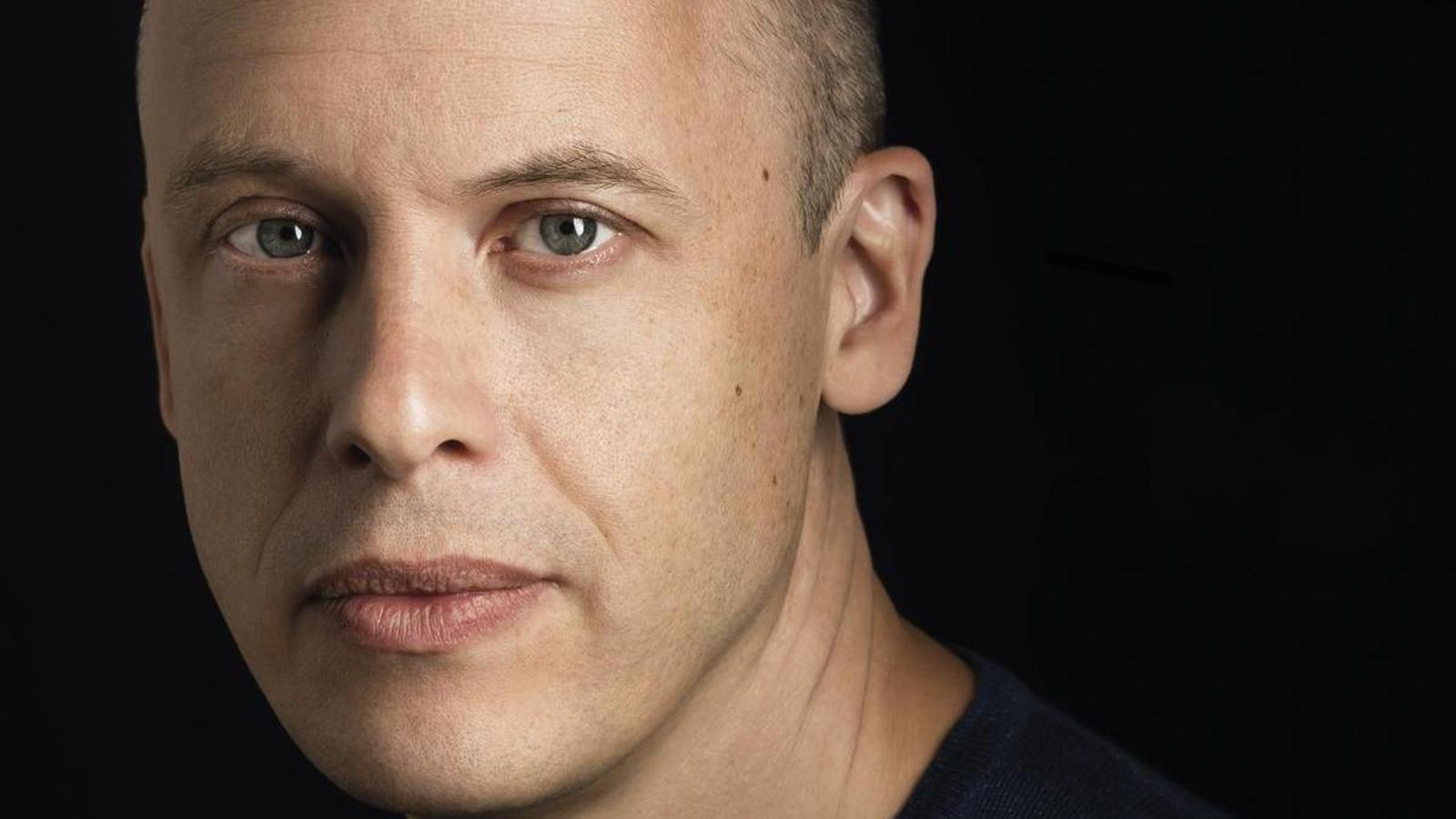Lev Grossman: "Merlin was complicit in Uther's rape at Igraine, where King Arthur was born."
The writer reinvents the medieval legend in 'The Flashing Sword', a historical and fantasy novel


BarcelonaSo much has been written about King Arthur that when American writer Lev Grossman (Lexington, 1969) wanted to approach him literary, he decided that this legendary character was dead. "Artur is both a king and a good man, but his past is full of terrible atrocities and bloody debts that must be paid. No matter how good he is, sooner or later they catch him and destroy him," explains the writer, best known for the previous trilogy, The magiciansWith the figure of Arthur absent and the kingdom dismantled, Grossman gave shape to the more than 800 pages of The Flashing Sword (Destino), a rich novel about the Knights of the Round Table after the death of their leader. The book, recently published in Spanish with a translation by Julio Hermoso, fuses history and fantasy and has been blessed by George R.R. Martin, the father of Game of Thunder.
The Flashing Sword It's the story of the death of a hero and the end of an era. Grossman approaches it through the protagonist, Collum, who still has his whole life ahead of him. He's a young man who grows up in poverty but manages to receive training to become a knight. When he feels he's learned enough, he flees to the court of King Arthur in the hope of being inducted into the Round Table. There, he finds a scene that is nothing like what he imagined: the most prodigious knights have died or disappeared, and the few who remain alive dedicate themselves to getting drunk and waiting for life to pass them by, utterly defeated.
"When I did some research to find out what happened after Arthur's death, I saw that there was almost no one left alive. Lancelot had retired. Gawain and Galahad are dead. At first I gave up: I couldn't see the story anywhere. But then I thought that the knights who were left alive were the most. From there, the writer began to devise an adventure with these characters, who until then had existed apart from the great fighters. "Rebuilding Britannia depends on them. They are not heroes, but they must become them," the author emphasizes.
A knight in love with the king
The knights' story advances with a common goal—to restore splendor to the kingdom—but in parallel, it takes on numerous ramifications to delve deeper into the characters' lives and their dilemmas and contradictions. One of the most relevant stories is that of Sir Beldivere, Arthur's right-hand man, whom Grossman portrays as a man closeted in his homosexuality and deeply in love with the leader. "If there are gay players in professional football, it's clear there were also gay knights at the Round Table. Now we're ready to hear the story of what it was like to be gay in Camelot, and I feel fortunate to be able to tell it," Grossman emphasizes.
The author also incorporates the story of a transgender knight, which is arguably the most personal part of the entire novel. "My son is transgender. Part of this story comes from watching him go through many struggles to become who he is today. There have always been trans people, but they've been erased from history," says the writer, who adds that with all these characters he wanted to "bring humanity" to the legendary figures of the knights of the table.
Pamphlets, Fairies, and the Last Druid
As I did with the trilogy of The magicians –with which he made his international breakthrough and became a well-known writer–, Grossman plays with the fantastic elements of legend to envelop the adventure in a magical atmosphere. The novel features elves, fairies, wizards, and the last druid, Merlí, who doesn't come off particularly well in the writer's portrayal of him. The Merlin of this story bears no resemblance to the Disney character, who is surely the best known in popular culture: he is a corrosive and self-interested man who uses his talents to unscrupulously manipulate others.
"I love Disney's Merlin, but if you look closely at the story you'll realize that the character has nothing to do with that. Merlin was an accomplice to the rape of Uther in Igraine, where King Arthur was born. He was so aggressive with his apprentice, Nimu imprisoned. He is the last druid: what price did he pay to survive? All of this exists, I'm not making it up," says Grossman.
Beyond magic, the novel is set against the backdrop of the reconstruction of British identity at a delicate time: the Romans have long since disappeared, leaving some traces and advances of the empire's passage through the island, but no one capable of continuing their legacy has risen either. "He became a symbol of royalty, legitimacy, and nationality, but when we talk about Artur, we forget that he actually failed," says Grossman. "He ruled a country deeply wounded by historical trauma, and in the end, he wasn't able to keep his citizens united."
